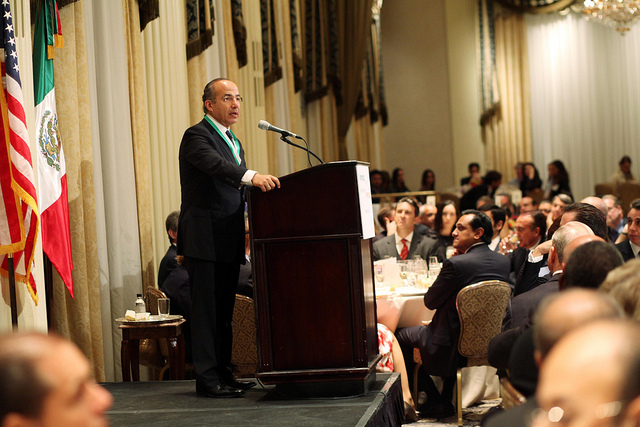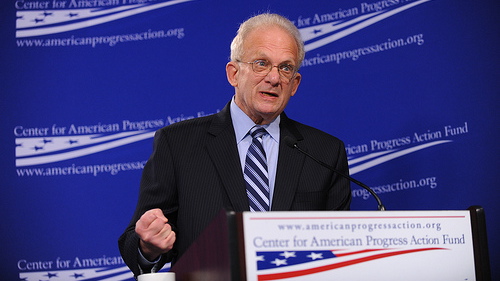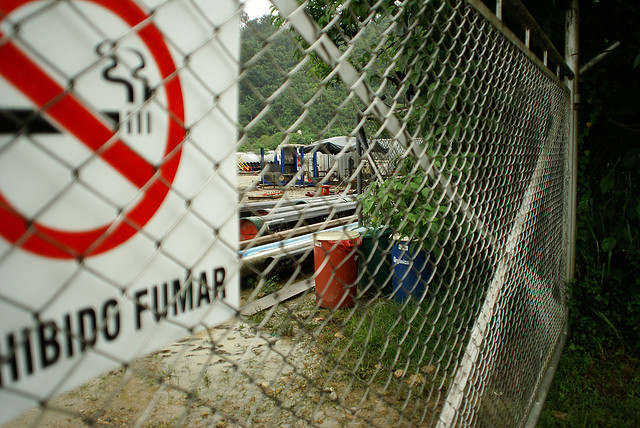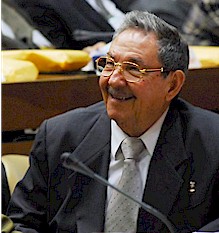
Colombia, Dispatches
The Top Ten Developments from Colombia’s 2010 Congressional Elections
March 22, 2010 By Special from La Silla Vacia
Colombia held congressional elections on Sunday, March 15. The following analysis, written by La Silla Vacía and translated by the Latin America News Dispatch, provides a rundown of the elections’ most important results.
1. “Uribismo” won
The Uribista coalition upped its majority in Congress. Four years ago, Uribe’s allies won 50 seats, but this Sunday they elected 60 senators.
Some say the Partido de la U lost, since of the 31 seats they held, including party-switchers, they held on to 28. But this count is deceptive. In 2006, they won 20 seats. They only secured the 31 spots after the “parapolíticos”[1] left and were replaced by people with less than 10,000 votes. To those were added the party-switchers, those Congress members who switched party affiliation during the two months in which a political reform permitted it.[2] But in this election, the false seats that weren’t backed by actual votes disappeared. Thanks to the new contribution from the party-switchers, the party made up for the loss. So in the final analysis, between 2006 and 2010, the coalition grew from 20 to 30 seats.
The Conservatives, including party-switchers, had 23 seats. They held them. Parapolítica stripped them of more than five senators and that’s how they stayed. Another point thus went to the Uribistas, who can also count the Partido de Integración Nacional (PIN) among their supporters (a party that groups together those who for the last four years were known as Colombia Viva, Colombia Democrática and Convergencia Ciudadana). The result is fewer Uribista parties, but more representation.
2. The PIN: the long life of “mafia politics”
Even though 67 members of congress are under investigation, indicted or convicted of parapolítica (see article), they managed to bequeath their votes. The PIN won eight, maybe nine seats. The son of the controversial lottery entrepreneur, Enilse López, alias “la Gata”, got more than 70,000 votes. But Juan Carlos Rizzeto, the government contractor from Valle del Cauca who benefitted from the support of Carlos Erney Abadía, father of the governor and head of a narcopolítico clan (see article), did even better. They amount to less than the 12 Senate seats held by Colombia Democrática (3), Convergencia Ciudadana (7) and Colombia Viva (2) combined, but they may become the fourth strongest block in Congress, in the same league as Cambio Radical.
The PIN became an important player in the upcoming presidential elections. As the analyst Álvaro Forero says, “the PIN has become a poisoned apple” and it will be interesting to see if Juan Manual Santos takes a bite or not. The PIN’s strength reflects that an emerging power, partially linked to drug trafficking, has managed to consolidate a space within Colombian society (since it’s impossible that they bought one million votes). This power could introduce a new campaign dynamic, between the “axis of good” and the “axis of evil.”
The senate candidates on our “questionable ballot” received almost 1.5 million votes, and almost 60 percent of them will enter the Senate.
3. The Greens, the new hope
The Green Party primary could reach 1.5 million votes. It would exceed the Liberal Party primary, which received one million votes, it would triple the Polo Democrático Alternativo primary, and it would amount to more or less half the Conservative primary. An impressive vote, considering the small size of their political machinery, represented by some candidates from the old party Opción Centro. This vote came mostly from voters without party affiliation.
In the most likely scenario, four of their candidates enter the senate, maybe five: Gilma Jiménez (with the most votes), ex-governor of Boyacá Jorge Eduardo Londoño, Félix José Valera, John Sudarsky and Wilfrido Uzuriaga are in. And in the house, at least two enter: Alfonso Prada and Angela María Robledo.
“Every historic moment has a candidate that simbolizes necessity,” explains analyst Héctor Riveros, who supports the Greens. “[Green Party presidential candidate Antanas] Mockus could simbolize the reaction against moral laxity, against parapolítica, against the ‘chuzadas,’[3] against the ‘vote before you go to jail,’[4] against ‘le doy en la cara, marica.’”[5]
Whether or not the campaign defines itself in relation to the theme of public morality, Mockus takes off on March 16 with an impetus he didn’t have before. People who once believed that supporting him meant throwing away their vote might think twice now. The Greens snatched the Polo’s most progressive sector and Mockus transformed into a real alternative for those who want a truly new direction for the country, grounded by a new system of values.
4. The Polo shrunk
The Polo went from 11 seats to eight, maybe seven. Interesting things happened: there was a reconfiguration of tendencies in which those who back the candidacy of Gustavo Petro form a clearer majority. Those who won seats included Gloria Flórez, in the Andean Parliament; Mauricio Ospina from Valle del Cauca; Camilo Romero from Pasto; Jorge Guevara, who represents teachers and who also beat Jaime Dussán; and Juan Carlos Avellaneda, who also backs Petro.
Of those who opposed Petro’s candidacy, the only ones to win seats were Iván Moreno (the mayor of Bogotá’s brother), Jorge Enrique Robledo and Alexander López. With López and Mauricio Ospina — both from Valle del Cauca — the southeastern region increased its clout within the Polo. This, paradoxically, could benefit Juan Manuel Santos’ candidacy, given his vice-presidential ticket Angelino Garzón’s close ties with the south of the country.
5. The Registry brought back the ghost of electoral fraud
The Registry flopped, from the design of the ballots to the logistics of vote-counting. The Registry’s public access Web page crashed very early and never went back online. Later, the site for journalists was blocked several times. Up to half an hour passed between report updates. The Registry blamed Une, the telecommunications company in charge of the transmissions.
At midnight, La Silla Vacía was at the vote-counting tables in Corferias and there were piles of ballots on the floor. One functionary from the Attorney General’s office told us that there “weren’t enough ballot boxes, they were old, they didn’t close, the logistics were a disaster.” And the envelopes began to arrive between 9:30 p.m. and 12 a.m., much later than usual. At 12:30 a.m., the functionary from the Attorney General’s office still didn’t know what was going to happen with those piles of votes, which would surely spend the night in Corferias. Would the witnesses stay as well?
6. Solidarity with kidnapping victims did not translate into votes
The solidarity of the six million Colombians who marched against kidnapping in 2008 did not translate into votes for kidnapping victims. Of the six candidates who represented the rejection of kidnapping, only Jorge Eduardo Gechem, from The U, obtained a seat. And maybe Sigifredo López will manage to get in. But Clara Rojas, who inspired such compassion among Colombians with her drama and the incident involving her son Emanuel, did not even break 5,000 votes; same with professor Moncayo, who didn’t reach 6,000 votes.
7. Abstention declined
Notwithstanding the difficulties posed by the five ballots with numbers but without photos, the vote was massive.[6] Almost 13 million people went out to vote. In 2006, a bit more than 10,769,408 votes were tallied, and in 2002, 10,130,399 — less than this time, although the number of people eligible to vote also increased. Notwithstanding the difficulties with the ballots, almost 10 percent of the votes were invalid, which is a little less than the percent of spoiled votes from last year.
8. Germán Vargas stayed, and purified himself
Cambio Radical, in spite of all its losses, survived, with less parapolíticos and after a crisis that cleansed it of the unfaithful and left only true “vargaslleristas.”[7] Without Germán Vargas heading the Senate list, who in 2006 gave them 223,000 votes and pulled the whole list, they held nine of the 15 seats they won in 2006. Because of the departure of the die-hard Uribistas, such as Roy Barreras and Elsa Gladys Cifuentes, and the Christians — with the Charismatic Mission and Claudia Castellanos — Cambio Radical has the honor of fighting for fourth place, like the PIN.
Cambio Radical, whose base in 2006 was in the capital, transformed itself. This Sunday, it won thanks to votes from the coast picked up by the entrepreneur Faud Char and the Senate president Javier Cáceres. Even so, Germán Varón, Vargas Lleras’ right-hand man, and the one who as House president was the thorn in the referendum’s side, was newly re-elected as representative in Bogotá.
9. The re-election referendum gave, and it took away
The Congress members and candidates who wanted to win votes by riding the Uribe re-election-referendum wave made out like bandits. The only exceptions were Elsa Gladys Cifuentes and Musa Besaile, of Córdoba. Both switched parties. Cifuentes lost and Besaile, who won the most votes in the House elections of 2006 with 72,000, won with only 51,000 votes this time around as a Senate candidate.
Roy Barreras hit a home run. This ex-member of Cambio Radical, who opted into Uribismo to spearhead the reelection, not only got enough votes to jump from the House to the Senate, but also had one of the highest votes of his new party. He went from being on the verge of losing his House race in 2006 with 16,000 votes to being elected this Sunday on March 14 with 74,000. Another two distinguished vote-switchers won: Plinio Olano, who went from 27,000 to 42,000 votes, and Maritza Martínez — who because her husband Luis Carlos Torres, ex-senator from Cambio Radical, renounced and is under investigation for parapolítica, passed his stronghold to The U and managed to sustain it.
Other champions of the referendum, who did not switch parties, won: the Antioquian senator Juan Carlos Vélez, who joined The U as a replacement with just 24,000 votes and defended the referendum in Congress tooth-and-nail, now definitively won his spot with 68,000 votes. And Juan Lozano, who after being minister of the environment for Uribe and one of the biggest defenders of the referendum, consolidated with the greatest support in the country from undecided voters: almost 200,000.
10. The bosses are still bosses
Notwithstanding the Green Party’s success, which gave hope to the country’s voters without party affiliations, the political machines still reign. Two of the three first spots in the Partido de La U were won by big bosses. Dilian Francisca Toro did not come in first, as in 2006, but she did win the second most votes from the Partido de La U with almost 140,000 votes. And she’s followed by old David Name Terán’s son, José David.
In the Conservative Party, the first vote went to a woman, heiress to a party boss. Olga Lucía Suárez Mira won more than 110,000 votes. With the liberals, it was the same song, second verse. The most votes went to Arleth Casado, also with a little less than 110,000 votes. So in the first three parties in the elections, at least two of their three biggest votes went to candidates from the great political machines.
Note from the editor of La Silla Vacía: these data come from the Registry’s Bulletin 41, which, at 6:03 a.m. on March 15, included 93.79 percent of the votes. Consequently, the results may change with subsequent bulletins and with the counts that will be conducted in the next few days. We still don’t know many things, including the results of the Conservative Party primary, which is virtually tied. In a few hours we will update.
[1] Colombian term for politicians accused of having connections with paramilitary groups.
[2] Colombian Congress members must vote in party blocks according to the Ley de Bancadas, passed in 2005. The law prohibits changing party affiliation between elections.
[3] A reference to a scandal in which the Departamento Administrativo de Seguridad, Colombia’s intelligence service, tapped the telephones of opposition politicians, journalists and Supreme Court justices.
[4] A reference to Uribe’s call to politicians with alleged ties to paramilitaries vote his projects before going to jail.
[5] Roughly translatable as “I’ll punch you in your face, bitch” — a phrase that the President Uribe used when scolding a public functionary in a telephone call that was later disseminated by the Colombian press.
[6] The Colombian ballot used to identify candidates with both photos and numbers.
[7] A reference to Germán Vargas Lleras, the current chairman of Cambio Radical and the party’s presidential candidate.
This article originally appeared as “Entre el girasol y la ‘Gata’, los 10 fenómenos de estas elecciones” on March 15 at La Silla Vacía, a Colombian Web site dedicated to investigative journalism. It was translated and reprinted with permission.
Image: World Economic Forum @ Flickr.






3 Comments
[…] Colombian commentator wrote after the […]
An interesting development in the last fewdays has been the boost of Antanas Mockus’ candidancy. After allying with Sergio Fajardo as vicepresident, the poll ratings have gon up significantly, even surpassing Noemi Sanin from the Conservative Party. This would meanthat Mockus, accoding to the latest poll from April 8th, would go to second round with Juan Manuel Santos from the “Partido de la U” remaining the most voted.
[…] former mayor of Bogotá running as an independent, has seen his popularity explode after his small Green Party performed well in congressional elections last […]
Comments are closed.